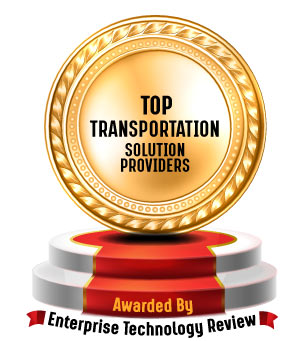
Intelligent Mobility: The Future Challenges in Transportation
Enterprise Technology Review | Wednesday, August 12, 2020

Intelligent mobility—the future of transportation—is progressively transforming the industry. Only the implementation of the technology poses a challenge.
Industry 4.0 is changing the future of transport systems. The urban areas are moving toward intelligent mobility, which is connecting people, services, and communities through technology. To adopt intelligent mobility, cities need a significant infrastructure reimagining across all transportation modes and leverage data and analytics, with artificial intelligence. It can improve mobility, increase efficiency and productivity, and promote sustainability. Connecting vehicles, pedestrians, and non-motorized transportation form supplemental communities impacting a host of industries, agencies, and players.
 A few intelligent mobility trends in the market as of today are electrification, connected and autonomous vehicles, shared transportation, micro-transit, and app-based mobility-ondemand. The challenge with these new technologies, however, is to integrate them into present infrastructure. Massive hardware and software investments are required to make these technologies a reality. Governments must partner with the private sector to form cost-friendly projects. Additionally, federal regulations and flexible policies are also challenging to overcome.
A few intelligent mobility trends in the market as of today are electrification, connected and autonomous vehicles, shared transportation, micro-transit, and app-based mobility-ondemand. The challenge with these new technologies, however, is to integrate them into present infrastructure. Massive hardware and software investments are required to make these technologies a reality. Governments must partner with the private sector to form cost-friendly projects. Additionally, federal regulations and flexible policies are also challenging to overcome.
Intelligent mobility will come with behavioral changes in domains such as how people commute, who is commuting, and where people choose to live. For instance, autonomous vehicles will bring forth the challenge of road congestion as children and older adults unable to drive would have the ability to commute alone. Autonomous vehicles also allow people to work while commuting, which means people are willing to live further from work and not worry about traveling long distances. Moreover, public agencies must work for the well-being of society. While the private sector focuses on the value proposition or the return on investment, the public sector must ensure that transportation is available to everyone.
While public transportation focuses on operations, the transit agencies must focus on providing a more seamless customer experience. To do so, policies need to be socially re-engineered to improve mobility, and the relationships with customers need to be simplified. These steps can encourage people to get out of their personal vehicles. To give riders a choice and satisfy them, public agencies must partner with the private sector and work on improving the overall transportation system. Private sector companies can help the public sector to fill gaps in the transportation networks for a seamless and integrated mobility experience.
See also: Top Artificial Intelligence Companies
Read Also









